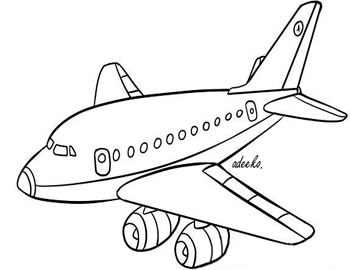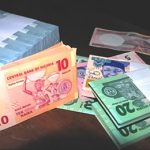To quell public sentiments about the credibility of the process, President Buhari in his letter to the presiding officers of both chambers of the National Assembly read in part: “In the expectation that the National Assembly would have no objection to the purchase of this highly specialised aircraft, which is critical to national security, I granted anticipatory approval for the release of US$496,374,470.00. This was paid directly to the treasury of the United States Government.” After the letter was read in both chambers, similar motions sponsored by Hon. Kingsley Chinda in House of Representatives and Sen. Matthew Uroghide in the Senate questioned Infractions in the process without recourse to due process as stipulated in the Nigerian constitution.
Section 81, for the avoidance of any doubt, deals generally with the form and making of annual budgetary allocations of the Federal Government: “(3) No money shall be withdrawn from any public fund of Federation, other than the Consolidated Revenue Fund of the Federation, unless the issue of those moneys has been authorized by an Act of the National Assembly. “(4) No money shall be withdrawn from the Consolidation Revenue Fund or any other public fund of the Federation, except in the manner prescribed by the National Assembly”. While both chambers of the National Assembly are yet to come out with a firm report from the motions, it becomes imperative to understand the position of the law in USA as regards doing business with other countries and why they looked beyond an approval from the Nigerian parliament before accepting the briefcase of dollars for the Tucano jets. Democracy makes governmental authority a public trust and as a result, the US believes it’s people (including corporations, since they are people too) ought not to induce violations of public trust in other countries. Violations of the Foreign Corrupt Practices Act (FCPA) which is termed the jewel in the crown of America’s fight against international bribes and corporate favors promotes American business and foreign policy ideals around the world, and give US companies a tool to battle corruption abroad.
The big questions starring on us now are: Did the USA violate it’s own law just to accept the millions of dollars for the Tucano jet? Was there a third party in the transaction and did the third party influence the Nigerian Government to release the money quickly? What is the position of the United States Congress as regards the transaction taking into consideration that the Senate President of Nigeria was quoted as saying he was contacted when talks was initially going on? For the benefit of hindsight, Donald Trump once called the FCPA in an interview he granted CNBC in 2012 “a horrible law” that stifles American businesses trying to work abroad” and it should be changed.” Will a man who had some resentment about the FCPA before he became president ensure the strict enactment of the law as the Commander in Chief.
It is also worthy of note that Jay Clayton, a former Wall Street defense lawyer who was nominated by Donald Trump in January 2017 to head the Securities and Exchange Commission was once quoted as saying the law placed US companies at a competitive disadvantage. In 2011 Clayton co-wrote a lengthy paper criticizing the law and it’s “zealous enforcement. The idea of Foreign Corrupt Practices Act (FCPA) makes it illegal for companies and their supervisors to influence foreign officials with any personal payments or rewards. The Act also applies to any act by U.S. businesses, foreign corporations trading securities in the U.S, American nationals, citizens and residents acting in furtherance of a foreign corrupt practice whether or not they are physically present in the U.S. The entire grasp of the FCPA is to the effect that foreign participators in the American market do not use its economy as a veritable tool to conveniently siphon funds, embezzle money and perpetrate fraud. Thus, it stipulates certain prohibitions which foreign participants should be wary of when trading with the U.S.
As earlier noted, the act governs all foreign persons i.e. individuals, corporations and even institutions. To this end, the Tucano jet contract falls within the eagle eye of the FCPA and seeing the dust raised by it and the obvious violation of constitutional provision. The questions as laid above earnestly craves an answer. However, what appears to be the blood on snow is the rumor of Americans role in aiding the Federal Government to accept Nigeria’s fund at a time when Nigeria’s economy is in dire need of money supplies. In the not too recent past, shady business transactions between companies in America working with corrupt foreign business interest have been found culpable by the Foreign Corrupt Practices Act and made to cough out heavy fines. In 2012, Japanese firm Marubeni Corporation paid a criminal penalty of US$54.6 million for FCPA violations when acting as an agent of the TKSJ joint venture which comprised Technip, Snamprogetti Netherlands B. V., Kellogg Brown and Root Inc and JGC Corporation.
- Sani writes in from Abuja





